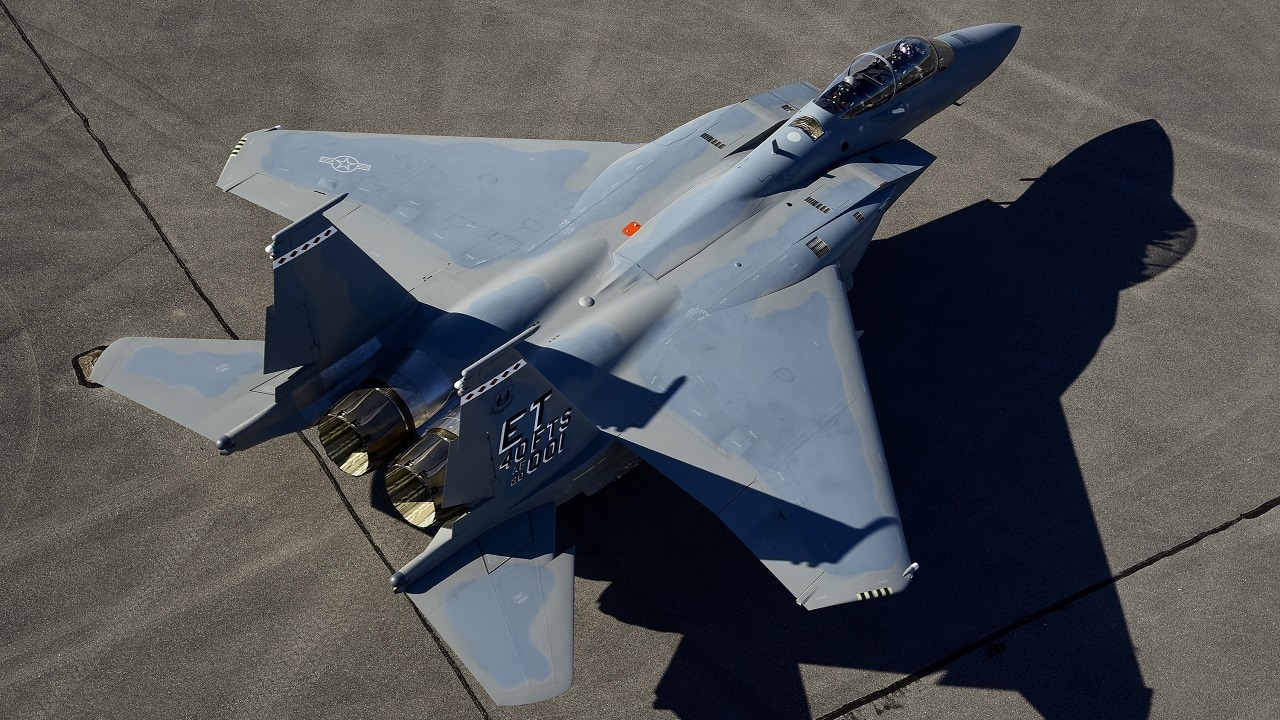Israel wants the latest F-15EX Eagle II for its inventory to help it fill the mission-critical role of keeping Iran’s proxy Hizballah at bay by keeping it from being able to accurately target its rockets aimed at Israel. The Israelis sent an official Letter of Request (LOR) to the U.S. government in January.
The F-15EX contrasts with the preceding F-15E Strike Eagle in that it has “fly-by-wire flight controls, two new weapon stations, a new electronic warfare suite, advanced radar, a hyper-fast computer, conformal fuel tanks, and a strengthened structure.”
It can also can carry approximately 6,000 lbs. more in terms of its ordnance capacity and fly 10,000 feet higher ―60,000 feet instead of 50,000 feet ― than its predecessor.
Israeli Politics Made Getting the F-15EX a Challenge
Israel’s government made a general decision in 2020 to acquire F-15s and F-35s; however, only a contract to acquire F-35s was made. The acquisition issues were disrupted by Israel’s internal political turmoil caused by five elections in under four years.
The earliest F-15EXs could arrive in Israel would be in 2028, Breaking Defense reported.
The Israel Air Force (IAF) wants more F-15s to strike hardened targets controlled by Hezbollah in southern Lebanon. Boeing claims the F-15EX “carries more weapons than any other fighter in its class and can launch hypersonic weapons up to 22 feet long and weigh up to 7,000 pounds.”
Boeing plans to provide Israel with 25 such jets and wants its 25 F-15I jets upgraded with the same avionics as the F-15EX. It will operate under the Israeli designation F-15IA, and it also will be Boeing’s first fighter deal with Israel in over two decades.
The F-15I entered into service in Israel in the 1990s. It carries a domestically designed Israeli-made computer and an Elbit viewing helmet and visor. It has seen front-line action in several Israeli conflicts including the 2006 Lebanon War, and the various Israeli-Gaza incursions, and has used them to counter missile threats. F-15Is have participated in training exercises with the U.S. Air Force to enhance the skills and tactics of its pilots.
The IAF operates 50 F-15 A/B/C/D variants. Many of these F-15s are well-worn after decades of service and are in need of a worthy replacement.
Israel Envisions F-15EX’s Working With F-35s
It plans to operate the F-15EXs in conjunction with the stealth F-35s whose primary mission will be to neutralize enemy air defenses such that the F-15s can go in as bomb trucks, deliver their ordnance, and leave. The IAF has particular concern that its nearest enemies could acquire Russia’s advanced S-400 “Triumf” anti-aircraft missile system, which has Israel feeling pressured to buy the aircraft.
Having the F-15EX and F-35 working together has emerged as a core part of Israel’s defensive strategy.
“Hezbollah and [Sheikh Hassan] Nasrallah know that Lebanon will be hit in an unprecedented way, which it has never experienced in its history,” Lt.-Gen. Aviv Kohavi said of what could happen in the event of a new Lebanon War. “A third Lebanon war will see a powerful attack that they have never experienced. They know this.”
Kohavi promised “waves of firepower”; consequently, these two jets working as part of a team will be intrinsic to Israel’s strategy.
John Rossomando is a defense and counterterrorism analyst and served as Senior Analyst for Counterterrorism at The Investigative Project on Terrorism for eight years. His work has been featured in numerous publications such as The American Thinker, The National Interest, National Review Online, Daily Wire, Red Alert Politics, CNSNews.com, The Daily Caller, Human Events, Newsmax, The American Spectator, TownHall.com, and Crisis Magazine. He also served as senior managing editor of The Bulletin, a 100,000-circulation daily newspaper in Philadelphia, and received the Pennsylvania Associated Press Managing Editors first-place award for his reporting.

